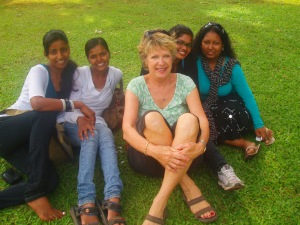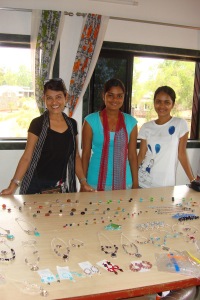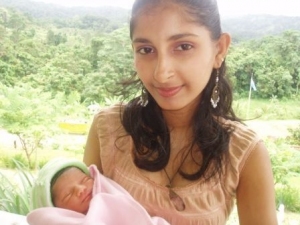The 10th annual Trafficking in Persons report (TIP report) was released in June and placed India on the Tier 2 Watch List for the seventh consecutive year. However, India should drop to Tier 3 because of all the corruption of political and law enforcement officials as well as the lack of arrests, prosecutions, and services provided by the government.
Historically, India has been known to be a source, transit, and destination country for human trafficking. All types of human slavery occur within the country—labor, sex, domestic victims, foreign victims, trafficking of men, women, and children. The history of India’s human trafficking issue varies by region. For example, in Mumbai exists the largest red-light district in Asia—Kamathipura. The area first began as a place for British troops to relax and “be comfortable.” In about the 19th century, women and girls were trafficked to work as prostitutes for the British and Indian men. The British eventually left India and the region was taken over by Indian sex-workers and traffickers. More recently, many women and girls from Nepal are also trafficked into Kamathipura to work as sex slaves. It will take a lot of patience and hard-work to undo what was begun in Kamathipura. That is just one story of the MANY large red-light districts in India.
This year’s TIP report contained a comprehensive summary and many statistics on human trafficking in India. To access the full report on India click here, for a brief summary see below:
– Only a few states (such as Andhra Pradesh and Tamil Nadu) showed significant improvement in enforcing laws
– The amount of police corruption that occurs in India is large and rampant
– NGOs are the key players in the anti-trafficking movement
– India has a slow & backed-up court system that contributes to injustice
– Some laws meant to rescue, restore, and protect victims are used to punish them (Section 8 of the ITPA and the Foreigner’s Act)
– 38 AHTUs (Anti Human Trafficking Units) in police departments are responsible for investigating human trafficking cases, and are meant to be comprised of specially-trained police officers
– There have been recently more prosecutions fully processing in places such as Delhi (several stories mentioned in the TIP report)

India has been put on the “Tier 2 watch list” in the TIP report for the seventh consecutive year. This ranking is the second to lowest in which “the government does not fully comply with the TVPA’s minimum standards, but is making significant efforts to bring themselves into compliance with those standards,” and there is either an increasing number of victims or little to no evidence of efforts to combat slavery.
“Why has India been on the watch list for so long and not dropped to a Tier 3?” It is rumored that our diplomatic relations prevent India from dropping to Tier 3. However, since amendments were made by the William Wilberforce Trafficking Victims Protection Reauthorization Act of 2008, India may drop to a Tier 3 next year. The amendment states that any country that has been ranked Tier 2 Watch List for two consecutive years (beginning from the time of the 2009 report) and that would otherwise be ranked Tier 2 Watch List for the next year will instead be ranked Tier 3 country, thus facing sanctions.
India has the necessary legislation to tackle human trafficking through prosecution of traffickers/clients and provision of services to victims. Unfortunately, these laws are ineffectively enforced and traffickers often go unpunished and victims are often left unassisted. Legislation is sometimes used against victims, such as Section 8 of the Immoral Trafficking Prevention Act (ITPA) which prohibits the act of solicitation for prostitution. It was used in some states to detain and penalize women in prostitution that often included trafficking victims (several state governments – such as Andhra Pradesh and Tamil Nadu – discouraged its use). The TIP report repeatedly noted that NGOs are leading the fight against human trafficking because the Indian government is slow, corrupt, and seemingly powerless.
Shared Hope International was initially founded to respond to the horrors of sex-trafficking in India. Just 2 hours north of Mumbai (Bombay), Shared Hope International funds Bombay Teen Challenge to operate the 72-acre Village of Hope in India called “Ashagram.”

show their products.
At the Village of Hope more than 140 female survivors of sex trafficking are provided with safety, security, medical care, emotional care, literacy training, educational training, and access to vocational facilities that provide a variety of options for economic development through the WIN program. Shared Hope also partners with Bombay Teen Challenge to operate a HIV/AIDS clinic that serves more than 2,000 people in and around the brothel district of Mumbai each year through providing protein packed meals, counseling, ART (anti-retroviral treatment) and other services. These programs have seen many women, like Ganga, become fully restored women who return to the brothel district to help others survive their victimization.
To include all information about India’s anti-trafficking efforts would take a long time since India is a country of 1 billion people. I encourage you to even go beyond the links to educate yourself on the issue of human trafficking because it is a very important step in ending modern-day-slavery.
 2006, and President Nailatikau now enforce a military government, restrict freedom of speech, and are delaying any elections until 2014 at the earliest. Despite the precarious political situation, according to the US State Department’s 2010 Trafficking in Persons (TIP) Report, a hopeful amount of progress in the fight against sex trafficking occurred this past year.
2006, and President Nailatikau now enforce a military government, restrict freedom of speech, and are delaying any elections until 2014 at the earliest. Despite the precarious political situation, according to the US State Department’s 2010 Trafficking in Persons (TIP) Report, a hopeful amount of progress in the fight against sex trafficking occurred this past year. Shared Hope International is presently active in Fiji through the provision of resources to fund a
Shared Hope International is presently active in Fiji through the provision of resources to fund a 





